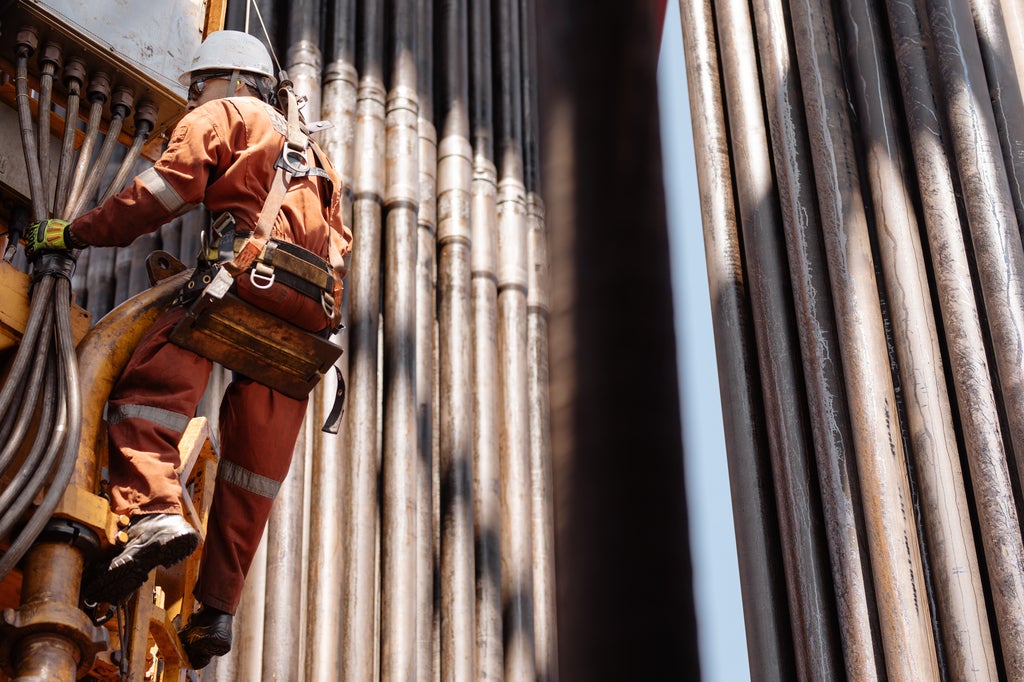
Across the world, offshore operators have cut workforces partly to reduce costs but also to limit the spread of the Covid-19 coronavirus.
In the confined spaces of offshore operations, contagious diseases can spread quickly. Most, if not all, operators have reduced offshore occupancy, staggered shifts, and started screening workers for coronavirus before they fly out. Despite this, infections do happen, and in March, several rigs in the North Sea had to perform emergency medical evacuations of workers with coronavirus symptoms.
On Thursday, 11 workers were flown from the Rowan Gorilla VI mobile drilling unit after a suspected outbreak on board.
In the UK, the rollout of widespread testing is making slow progress. Initially, some operators including BP paid for coronavirus testing to be done privately before workers went offshore. However, workers criticised the company for sending them offshore before test results came back.
Testing is starting to become available through the government, and offshore workers are among those prioritised for being offered tests.
Trade body says offshore may hold less of coronavirus than onshore
The UK’s oil and gas trade body OGUK has seen a fall in the number of workers returning from offshore with symptoms. In the week beginning 3 March, the number of possible infected returning stood at 19. In the week starting 4 May, this was down to eight.
How well do you really know your competitors?
Access the most comprehensive Company Profiles on the market, powered by GlobalData. Save hours of research. Gain competitive edge.

Thank you!
Your download email will arrive shortly
Not ready to buy yet? Download a free sample
We are confident about the unique quality of our Company Profiles. However, we want you to make the most beneficial decision for your business, so we offer a free sample that you can download by submitting the below form
By GlobalDataThe Gulf of Mexico has also seen multiple infections. On 8 April, the US Coast Guard said more than 26 workers had tested positive for Covid-19 across seven platforms. However, the country’s National Ocean Industries Association has said being offshore could be safer than being among the public.
In the Middle East, Saudi Aramco has launched an awareness campaign for all staff. Through its healthcare joint venture, it has provided workers with access to information on how to prevent transmission and how to seek help in the relevant countries. It has also created a mental health toolkit for workers in isolation.
However, the company faced criticism during the early stages of the global spread for tasking an employee to dress up as a ‘human hand-sanitiser dispenser’. A photo of this was widely shared and condemned, and the company condemned the practice as ‘abusive’ and immediately stopped it.
Aramco is screening all employees and contractors at every facility to detect the fever associated with Covid-19. At its plant in Riyadh, it has implemented safe distancing guidelines for all 4,000 truck drivers coming through the facility.
In South America, ExxonMobil recently confirmed it is making workers undergo a 14-day coronavirus observation period before travelling offshore. The company has set up a health facility in Stabroek, Guyana to monitor workers.
In reality, are guidelines being followed?
In Africa, some governments have tightly controlled offshore travel, requiring workers to obtain a permit before travelling.
Offshore New Zealand, OMV has asked workers to remain offshore for a month at a time. On the Maui A platform, 10 workers continue operations where 65 previously worked. The Maui B platform remains unmanned.
However, safety measures rely on enforcement and resources.
Online, rig workers share stories of the realities of working through the coronavirus pandemic. In posts to a Facebook group, rig workers have posted pictures of work flights with no distancing and shared stories of inadequate testing. One said their rotation was not fully tested, and they were sent offshore before results came back. When results showed one of the crew was infected, the infected individual was returned onshore. However, the rest of the crew were told to keep working.
Earlier, another said: “I’m grateful to be working in these mad times, but it is scary and astounding how these rigs in dock are still acting like nothing is happening. Feels inevitable that someone here will catch Covid-19.”
Others have shared their distress with ‘the new normal’. One said they were not happy as they were no longer allowed to serve their own portions in the canteen: “They don’t give half of what I normally get. I hope I don’t lose any weight on this trip.”







